When Sash Becvinovski was born in 1972, the leading goalscorer in the Victorian State League that year was Jimmy Armstrong. His 17 goals with South Melbourne Hellas helped them clinch their fifth Championship on goal difference over perennial runners-up George Cross.
In thirteen seasons in the Victorian top-flight, Armstrong amassed 152 goals, a post-war record which stood for almost thirty years, until a 29-year-old Becvinovski eclipsed that tally before claiming an unprecedented double century.
Sash Becvinovski began his football as a 6-year-old with Footscray JUST in 1978, a club he would spend his junior days with as its lauded senior team grappled with life in the fledgling National Soccer League. Barely a month after his 17th birthday, a conversation with then head coach John Margaritis and club captain Oscar Crino led to an invitation to train with the senior team. Becvinovski recalls his excitement at the time, “It feels like yesterday when I had that conversation. I had no expectations about playing at all, I just wanted to experience training with the first team”.
It didn’t take long for Becvinovski’s talent to shine through, making his senior debut for Footscray JUST at Schintler Reserve in a 3-1 loss to Sydney Croatia. His teammates included Gary Van Egmond, Mehmet Durakovic and Ernie Tapai, while the opposition featured Graham Arnold, Robbie Slater and David Seal. Esteemed company for someone so young, but the talented striker didn’t look out of place. He featured another seven times for the relegation bound club, scoring against Sunshine George Cross and Adelaide City.
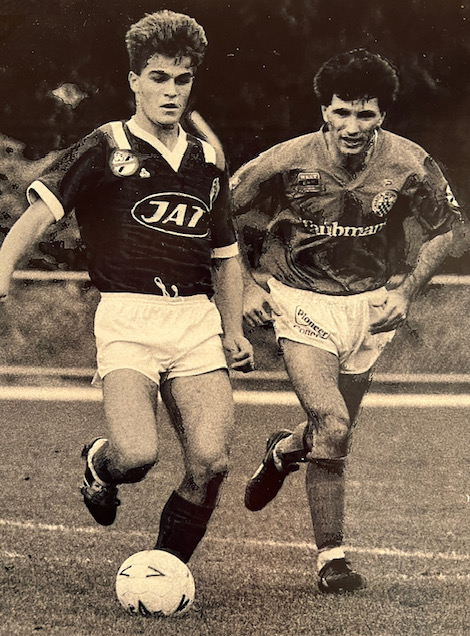
The beginning of the new decade started with the final season of the Victorian State League, with JUST struggling to keep pace in a league which featured 18 clubs and 34 home-and-away rounds. The chaos of that season (matches played on successive days on several weekends) made it difficult for the statisticians of the time, but what is known is that Becvinovski had now established himself as a formidable prospect. 12 goals from at least 26 appearances was enough to garner interest from international selectors, with a call-up to the Australian Under 20 Youth team. He also penned a deal with Wollongong Macedonia for what proved to be their solitary NSL campaign.
While that move proved short and relatively unsuccessful (a mere 2 starts and no goals in 5 appearances), his return to Victoria with Green Gully in the inaugural season of the Victorian Premier League delivered successive Golden Boots and Under 21 Player of the Year gongs. A season return of 17 goals in 24 starts was followed by 18 in 26, as Gully finished 4thin 1992, eliminated by Fawkner in the first week of the Finals series.
That form earned another NSL contract, this time with the newly promoted Morwell Falcons. Under the stewardship of Bobby McLachlan, Becvinovski would enjoy his best season in the NSL, netting 9 times in 23 matches. “It was the club’s first season in the national league, with the Latrobe Valley having huge support from wonderful people that ran the club, including the amazing Don Di Fabrizio.”
Alas, the long drive to Morwell several times a week encouraged a move back to Melbourne the following season, where he would again link up with John Margaritis at Brunswick Juventus. His sacking midway through the season ultimately cost Becvinovski his place in the starting eleven and it would be five long seasons before he returned to the NSL.
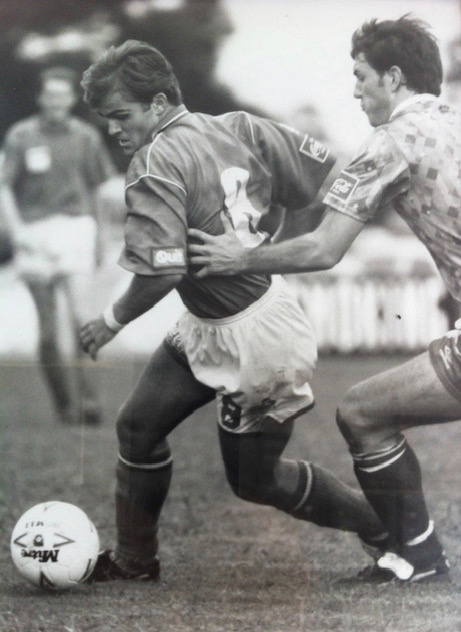
The newly badged Preston Lions, fresh from NSL relegation and with Peter Ollerton at the helm, signed Becvinovski for the 1994 Victorian Premier League campaign. With a strong defensive foundation, the Lions stormed to the Championship, Becvinovski scoring 7 goals in a team which featured an abundance of talent. “It was my first Championship at a massive club that had a rich history and our squad had a large number of ex-NSL players like Steve Blair, Dale White, Gerry McAleer, Sean Lane, Adrian Pender, Robbie Spasevski, Robert Stojcevski and Phil Traianedes to name a few.”
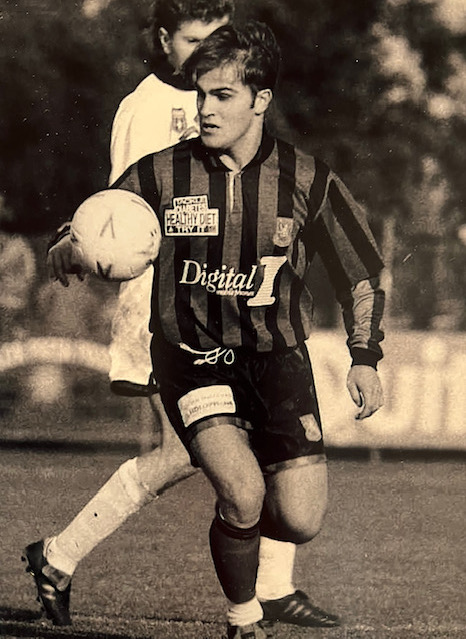
Financial trouble struck Preston the following season, an exodus of players coupled with three different coaches leading to relegation and another tap on the shoulder from a coaching luminary, “to my surprise, I got a phone call from Ian Dobson who was at Champions Altona Magic.” But Dobson was soon on the move himself, answering the call from Melbourne Knights in the NSL and was quickly replaced by Gary Cole.
This time, a change in coach worked wonders, “We reached the Grand final for the second year running against a strong Heidelberg United side that pushed us that day in front of 6,000 at Middle Park.” Becvinovski scored a brace in normal time and again in the penalty shootout, undoubtedly benefiting from the tutelage of a legendary goalscorer in his own right. “Gary played at the top level and being a striker as well made it easier to understand one another. He was a great communicator and he taught me a lot in terms of positional movement in and around the box.”
Cole himself recalls a player at the peak of his powers, “Sash was technically very good. He could receive the ball comfortably from any angle or height. In addition to a wonderful first touch, he had a terrific passing range and the vision to bring other players into the game.” Yet there was improvement still left in his game, “I asked Sash and the other strikers to spend more time facing forwards and make forward runs in behind defenders. Sash adapted to this really well. I think he saw the benefit of playing this way and he scored regularly on the way to another Championship.”
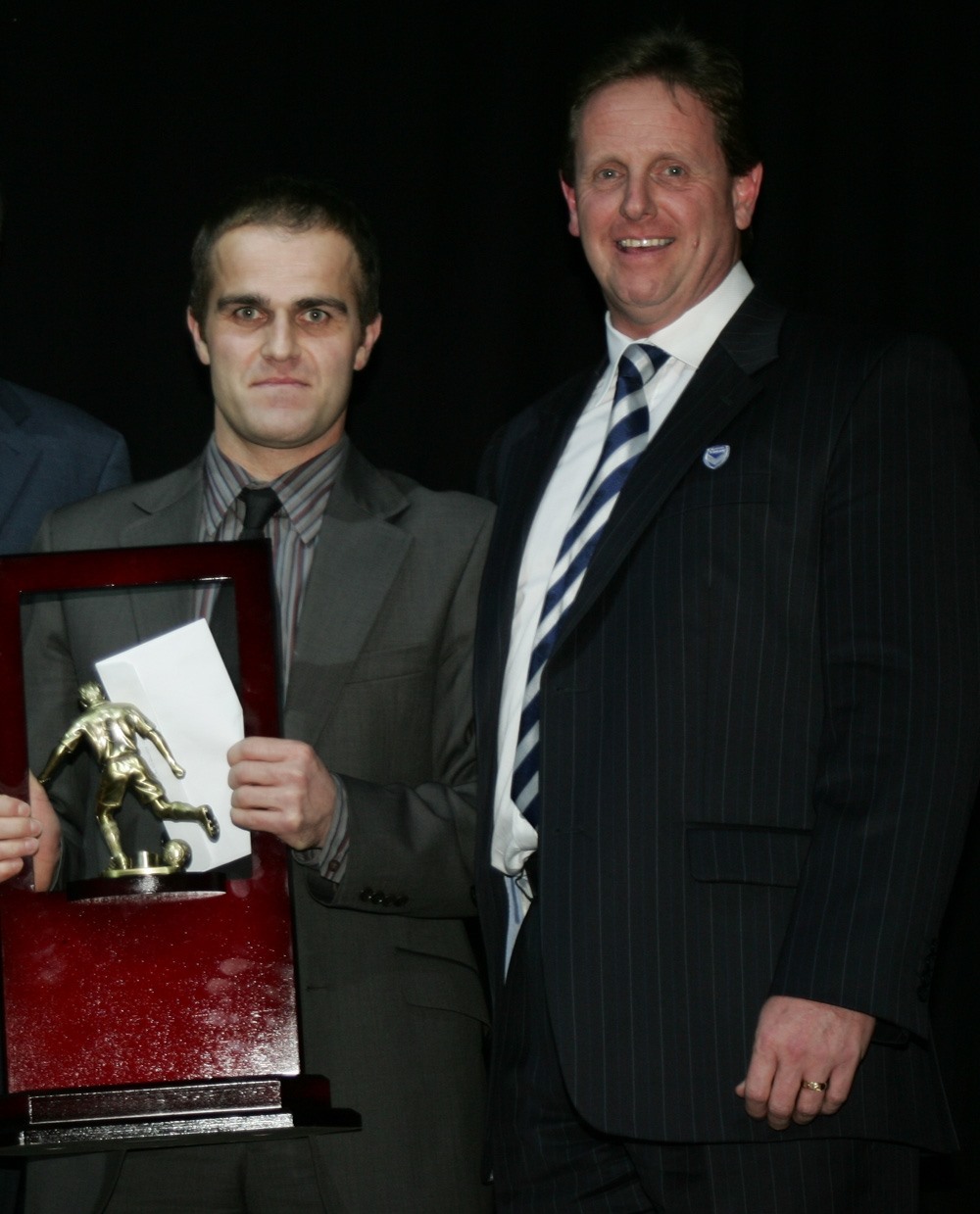
And another Championship after that, with Becvinovski scoring 70 goals for the Magic in three seasons making it impossible for NSL clubs to ignore his prolific goalscoring form much longer, and at 26, he returned to Morwell with Gippsland Falcons midway through the 1998/99 season. But a solitary goal against the Knights was the only goal in a largely fruitless campaign which saw the Falcons finish second from bottom.
It was Dobson who would bring him back to the Premier League in 2000, this time at Green Gully, where he would play in a Championship team once again in a first-past-the-post season. His return to Magic in 2001 would begin his longest stint at any club, seven seasons which witnessed two losing Grand Finals in 2004 (Bulleen Zebras) and 2006 (South Melbourne).

2006 would see Becvinovski secure his fourth Golden Boot, but Best-and-Fairest honours had always eluded him. “I finished runner-up twice and third once. To be honest, I thought the horse had bolted and the Gold Medal seemed so far away, especially at the age of 34.” But his form in 2006 clearly caught the eye of match officials, and Becvinovski would finally claim the one individual award he didn’t have in his trophy cabinet, polling 27 votes ahead of Manny Muscat (24), Fernando de Moraes, Henry Fa’arodo and Jeffrey Fleming (23).
At a time when representative opportunities were few and far between, Becvinovski managed seven appearances for Victoria, scoring in the first leg of the Fiji tour in 2003. Gary Cole was the head coach on that tour and reflects on the role he played in the team as an experienced 30-year-old, “Sash represented Victoria with pride in our two wins. He was a confident character and a leader.”
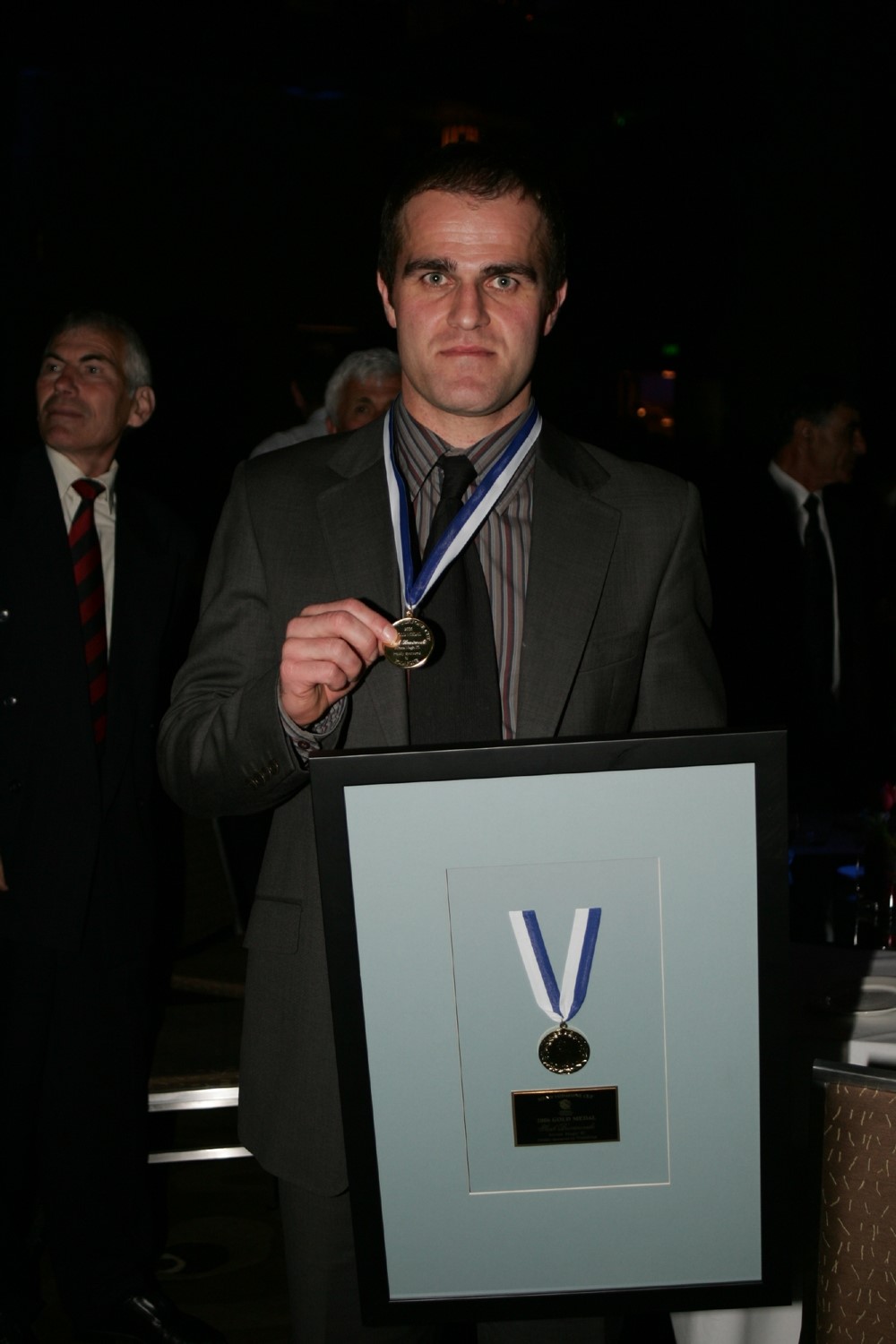
His final season in the Premier League in 2007 would prove noteworthy, as Becvinovski nabbed his 200th goal in the Victorian top-flight, a 66th minute equaliser against Preston Lions at Paisley Park. Given the absence of official records at the time, it was met with little fanfare. Becvinovski dropped down to the second tier in 2008, mentoring a young Mathew Leckie at Bulleen Royals and scoring 17 goals on the way to another Golden Boot. He ultimately concluded his playing career with Pascoe Vale in the same competition in 2011, aged 39 and with a remarkable 239 goals scored in the NSL and top two tiers of Victorian football. His 205 goals in the Victorian top-flight sets him head and shoulders above any other player in the post-war era.
The final word on a decorated playing career rests with Sash Becvinovski himself, “I am very proud of what I achieved. There were some great people in Victorian football who pushed me to the limit and encouraged me to always try and be the best that I could be.”
Sash Becvinovski turned 50 in April, and in a year where the Men’s Gold Medal will be awarded for the 50th time, few would begrudge his place in history.
